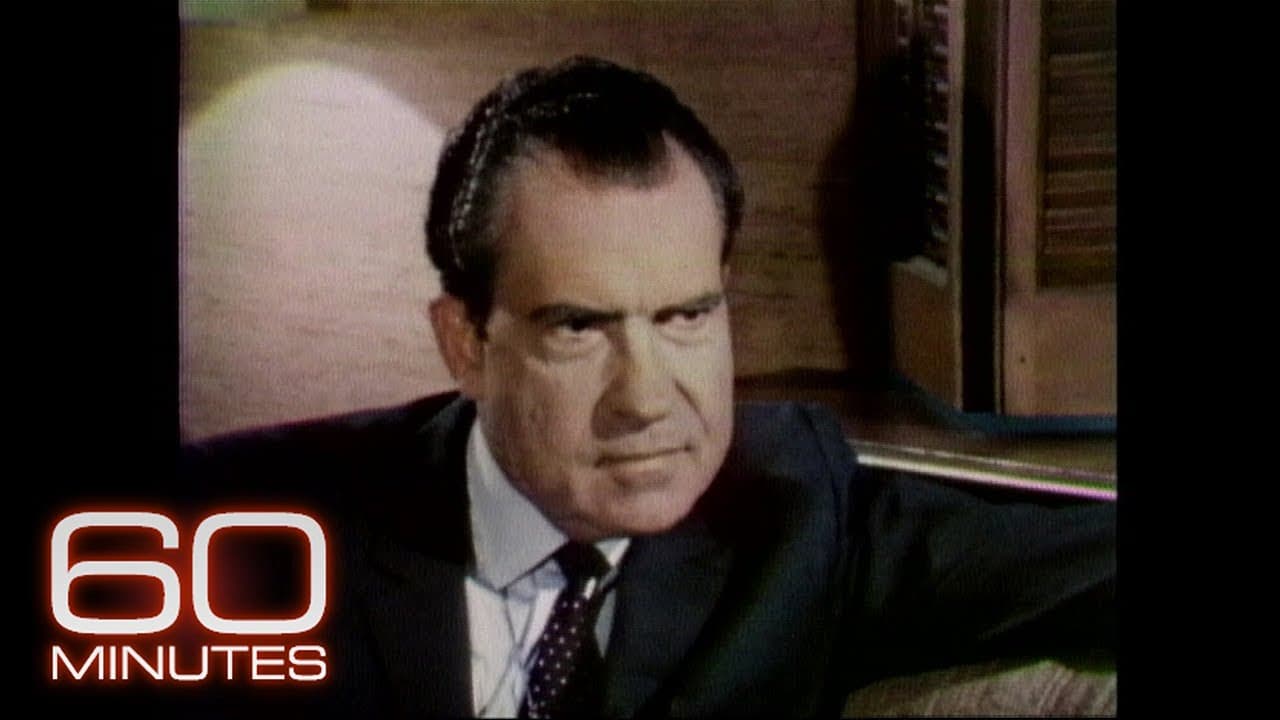The Nixon Years | 60 Minutes Archive
08 Aug 2024 (8 months ago)

The 1968 Republican National Convention
- The text describes the 1968 Republican National Convention in Miami Beach, Florida, where Richard Nixon was chosen as the party's nominee for president.
- The text highlights the excitement and anticipation surrounding the convention, with delegates from various states casting their votes for Nixon.
Nixon's Presidential Campaign
- The text mentions that Nixon was watching the convention unfold on television from his hotel room, surrounded by his close advisors and staff.
- The text also describes Nixon's campaign against Hubert Humphrey, emphasizing the backdrop of the Vietnam War and the need for leadership to heal the nation's divisions.
- Nixon expresses his belief that he possesses a different kind of strength, forged through hard work and perseverance, rather than relying on wealth or social grace.
- Nixon emphasizes the importance of principle, courage, and character in leadership, arguing that these qualities are more important than style or charisma.
- Richard Nixon believed that he could command the respect of the American people, even if he was not loved. He felt that respect was more important than being liked.
- Nixon acknowledged that he was disliked by many Americans due to his political career. However, he believed he had the leadership qualities to unite the country and earn the respect of those who disliked him.
- Spiro Agnew was chosen as Nixon's Vice President. Agnew was seen as a controversial figure, but Nixon believed he could appeal to the "silent majority" of Americans.
Nixon's Administration
- Henry Kissinger, Nixon's National Security Advisor, was not a Nixon partisan initially. However, he became a valuable asset to the president.
- Kissinger described Nixon as a president who constantly met with people seeking something from him. He also stated that Nixon would often ask for his opinion and then make his own decision after considering all the information.
- Kissinger found Nixon to be easy to work with, courteous, and systematic. He believed that Nixon would not hold it against someone for making a wrong recommendation, as long as it was not a recurring issue.
The Watergate Scandal
- John Erkman, a close advisor to President Nixon, was interviewed about his involvement in the Watergate scandal.
- Erkman claimed that he was not responsible for the Watergate break-in, stating that it was the responsibility of the White House Counsel.
- He stated that he did not become aware of the cover-up until March 1973 and did not fully understand its extent until April.
- Erkman explained that he was initially unable to connect the pieces of the puzzle but eventually realized John Dean's involvement.
- When asked why anyone in the Nixon administration would defend the Watergate burglars, Erkman suggested that there may have been a compassionate motive, but acknowledged that it was a question related to the cover-up.
- Erkman denied that the White House had any interest in covering up the scandal.
- He disputed a list of illegal and unethical acts committed by individuals in the Nixon administration, arguing that it misrepresented the situation and unfairly targeted the president.
- Erkman was later sentenced to 20 months to 5 years in prison for his role in the Watergate scandal.
- E. Howard Hunt, a member of the "plumbers" unit, was a loyal and ambitious Nixon supporter.
- Hunt believes that the press treated President Nixon unfairly, but he acknowledges that the press has a role in covering the presidency.
- Hunt admits that the Nixon White House fostered a sense of power, arrogance, and fear.
- Hunt believes that the Nixon administration sometimes made policy out of bitterness and anger towards certain groups, including the press.
- Hunt attributes the climate of fear and distrust in the White House to Richard Nixon.
Nixon's Legacy
- Nixon expressed a desire to leave politics and pursue writing and teaching, but he ultimately remained in the political arena.
- Nixon believes that the "virus" of politics is incurable and that he is unable to escape its influence.
- Nixon also expressed a desire to return to music and play the piano.
- The speaker compares the process of writing to playing the piano, suggesting that both involve a struggle to express oneself effectively.
- The speaker believes that political leaders, like artists and writers, create something.
- The speaker admires the presidency because it offers the opportunity to make a difference, not just achieve personal recognition.
- The speaker believes that Richard Nixon was a man who both created and achieved greatness but ultimately destroyed himself through his own actions.
- The speaker suggests that Nixon's downfall was a result of his own insecurities and desire to be liked, which led him to engage in unethical behavior.
- The speaker believes that Nixon's actions exposed his human flaws and ultimately led to his downfall.
- The speaker concludes that Nixon's legacy is one of both great accomplishment and profound disgrace.